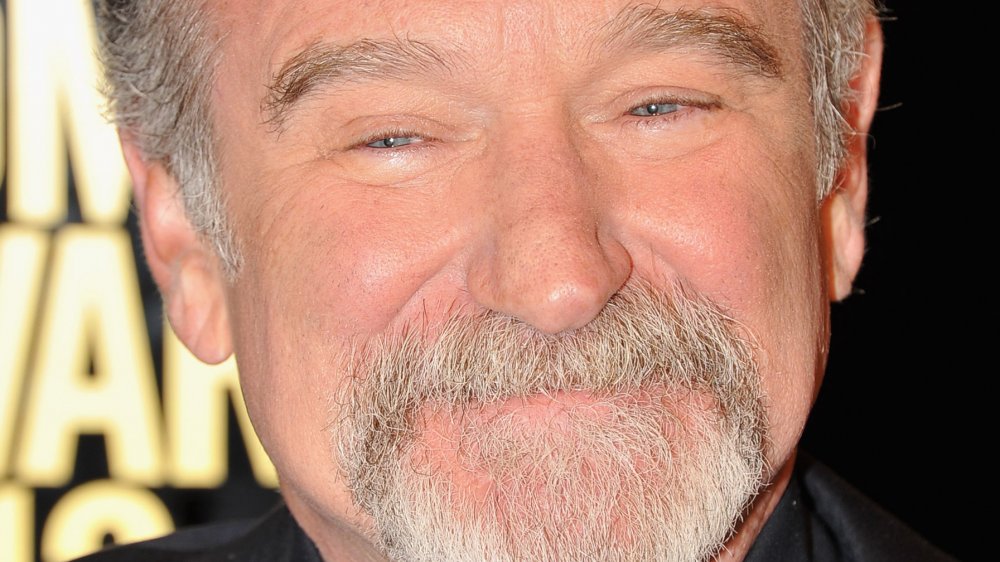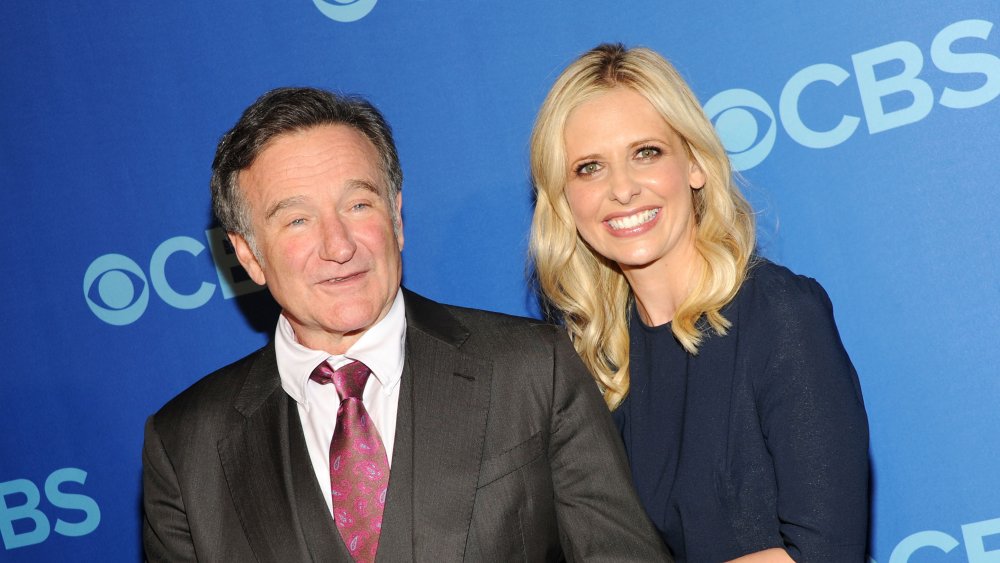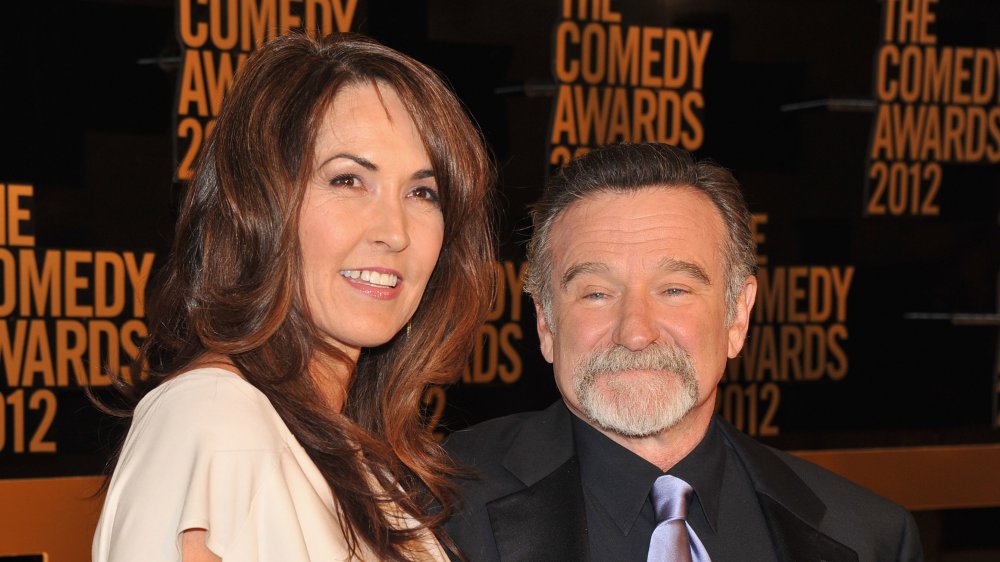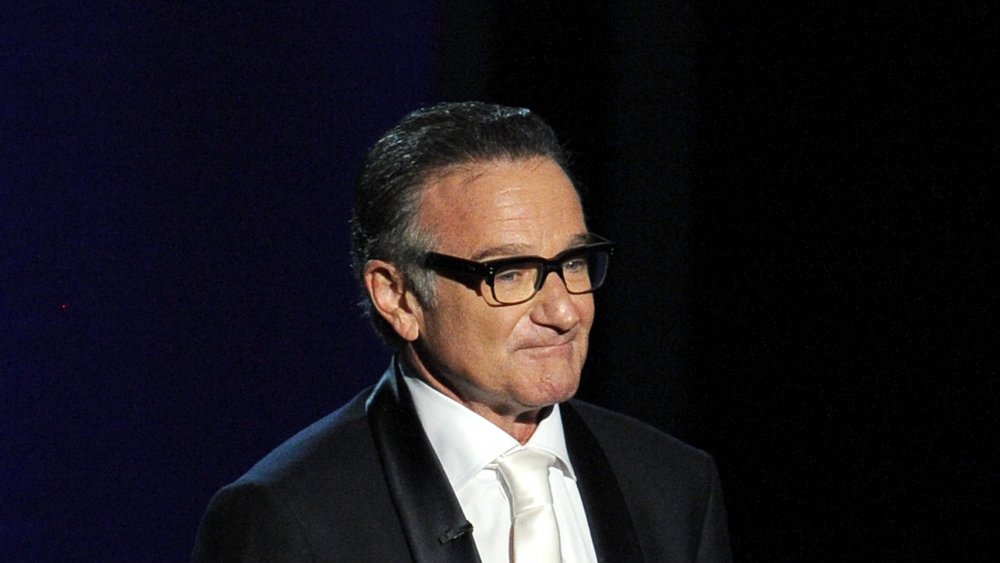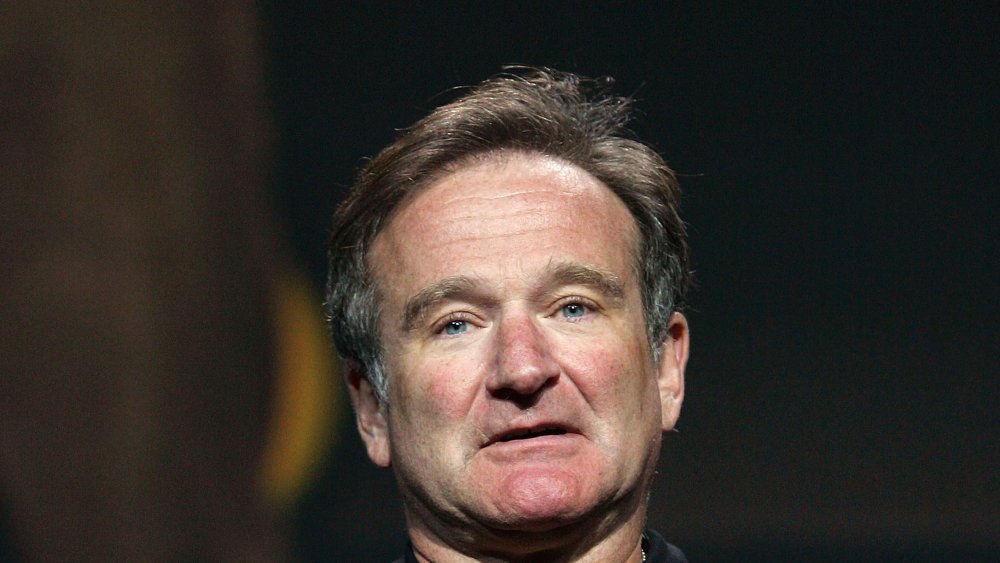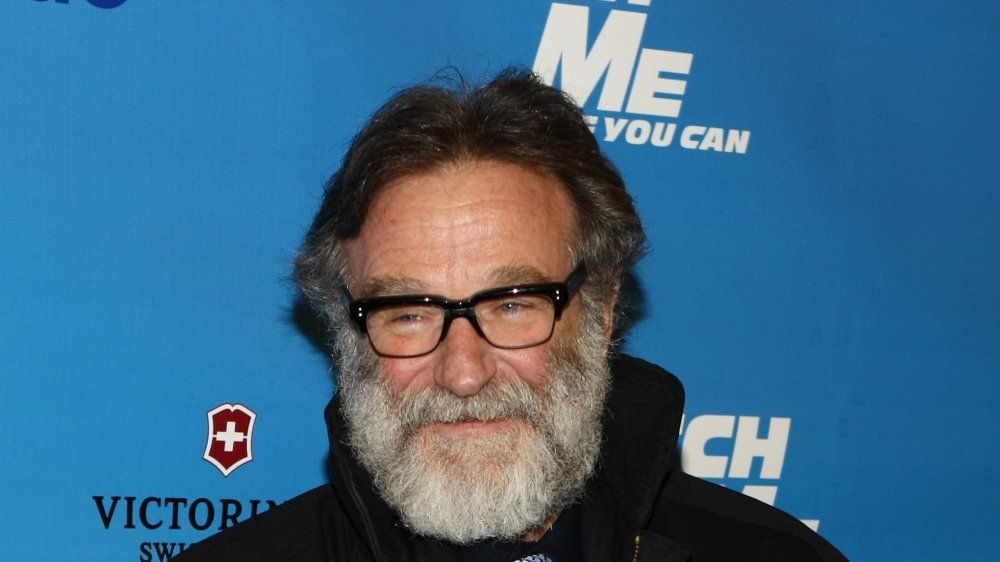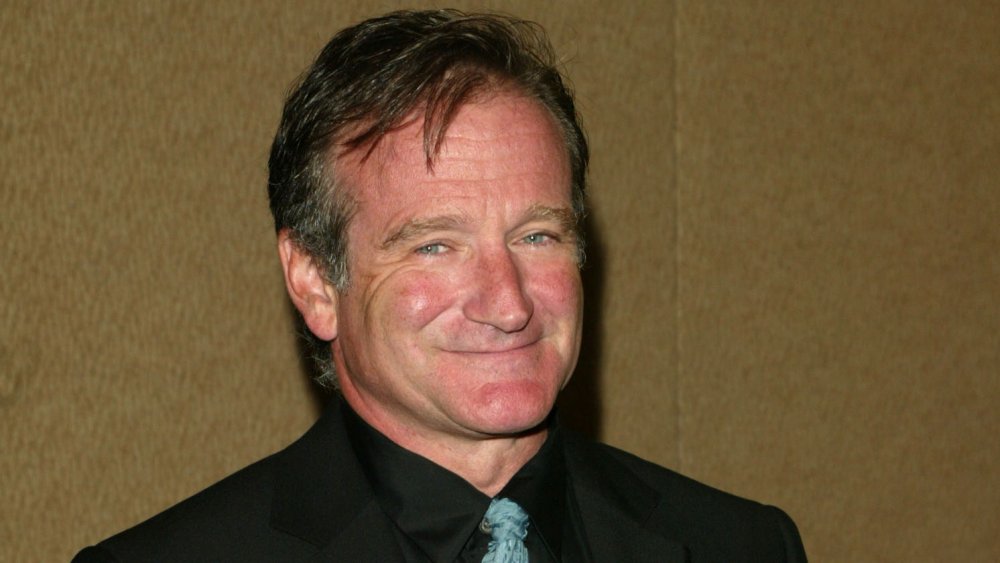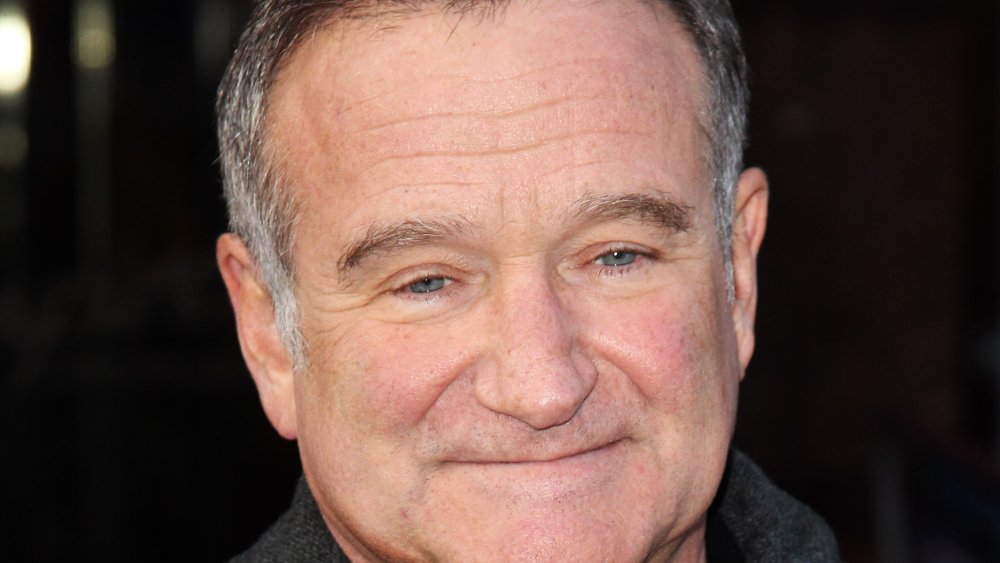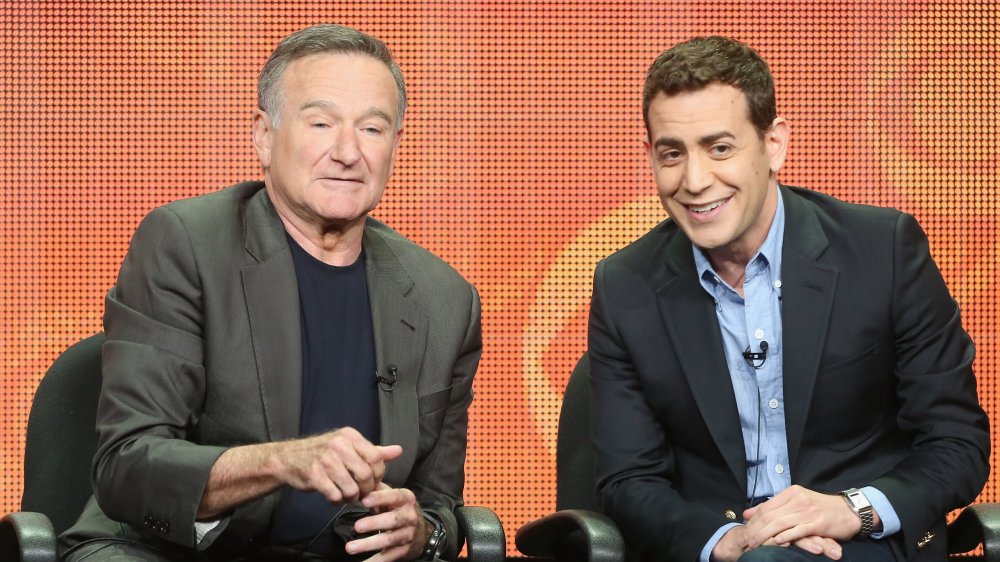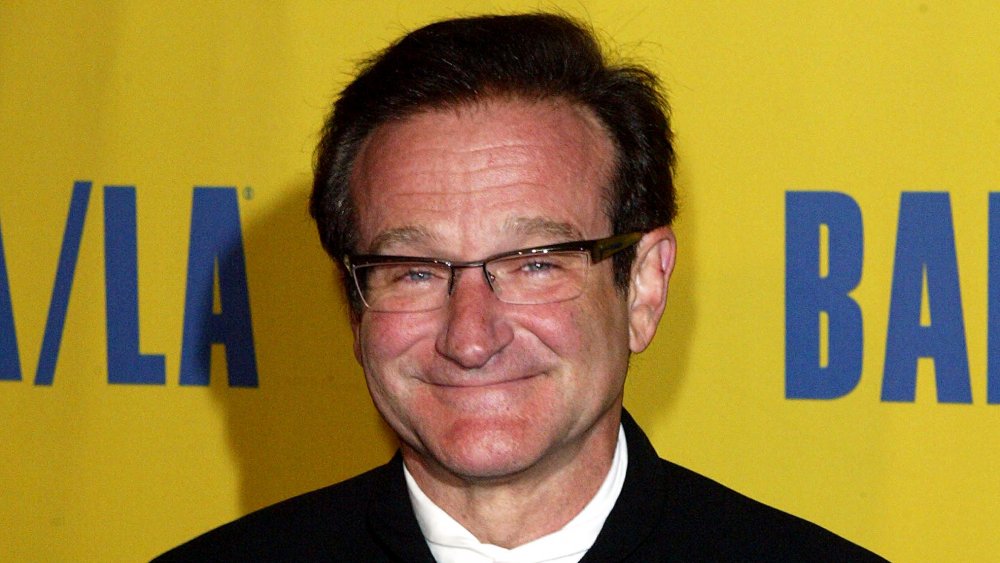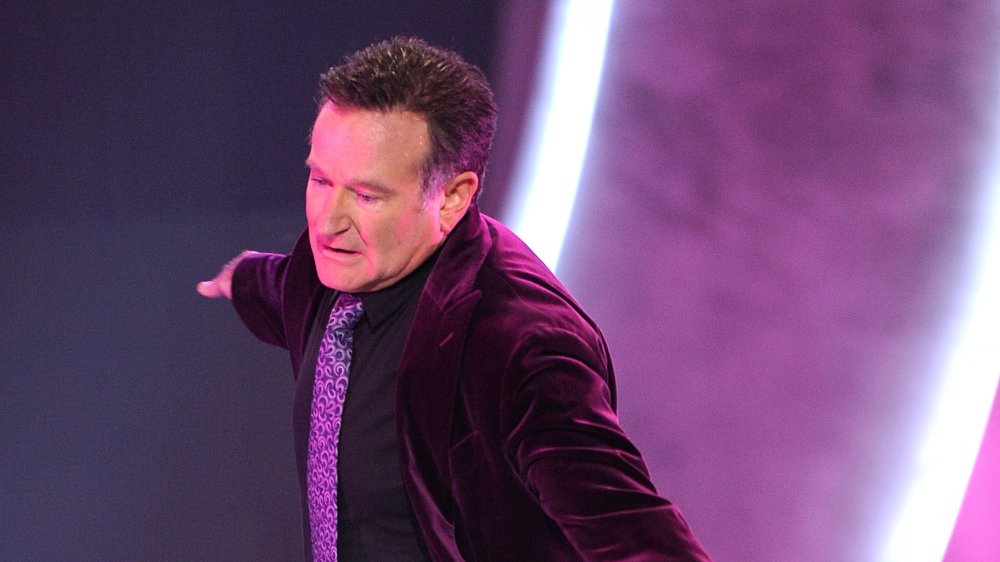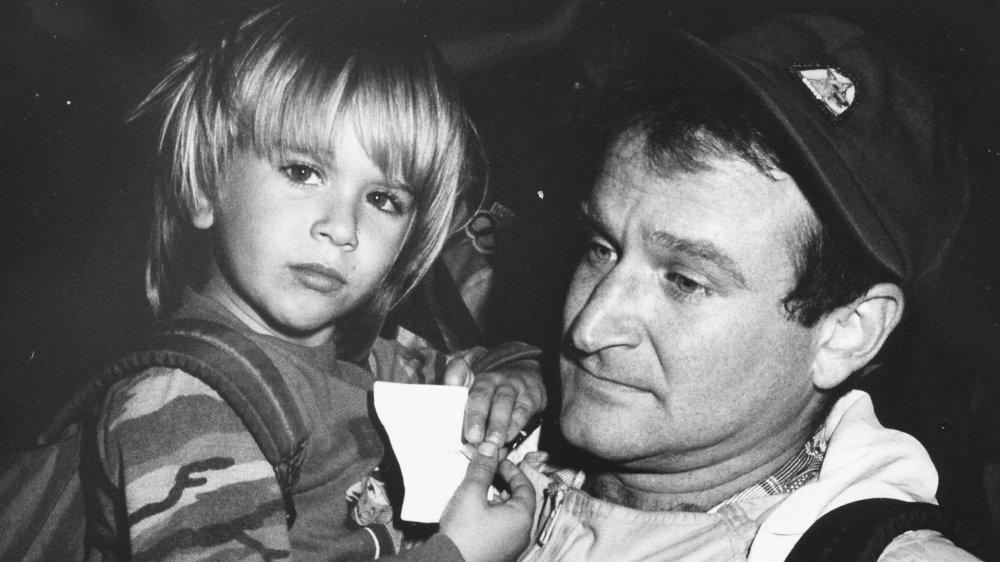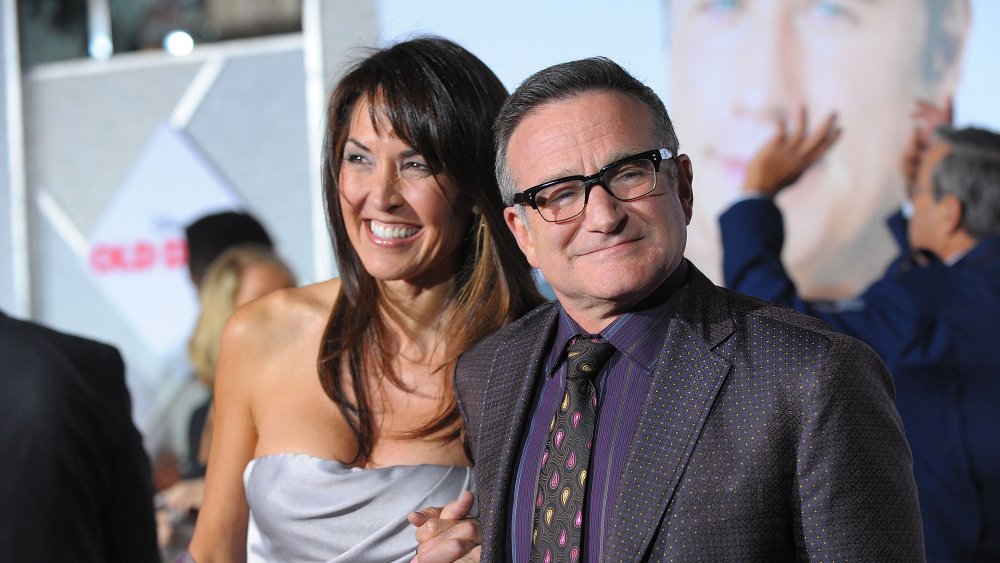What The Last 12 Months Of Robin Williams' Life Were Like
The passing of legendary actor Robin Williams, the face of many classic films such as Mrs. Doubtfire, Good Will Hunting, Good Morning, Vietnam, and Dead Poets Society, left millions distraught in 2014. He was 63.
His death came as a shock, especially when it was revealed that he died by suicide in his home. Robin is considered to be one of the greatest actors of his time and had an undeniably charismatic on-screen presence. His brilliant career, his stand-up comedy skills, and his relatable persona earned him a lot of love from his fans. However, away from the spotlight, Robin Williams went through several struggles during the last year of his life, including trying to negotiate both his health issues and professional obstacles. Here's a glimpse into the final 12 months of his journey.
If you or anyone you know is having suicidal thoughts, please call the National Suicide Prevention Lifeline at 1-800-273-TALK (8255).
Robin Williams' career was experiencing a downturn
Robin Williams made a return to TV with his sitcom, The Crazy Ones, on CBS in September 2013. While there was plenty of anticipation around the show when it first aired, it failed to take off and was discontinued after the first season. This was extremely disheartening for the actor, as the show had been touted as his comeback. His co-star, Sarah Michelle Geller, remembered the actor after his demise. "My life is a better place because I knew Robin Williams," Gellar told People. "To my children he was Uncle Robin, to everyone he worked with, he was the best boss anyone had ever known, and to me he was not just an inspiration but he was the father I had always dreamed of having. There are not enough adjectives to describe the light he was, to anyone that ever had the pleasure to meet him."
Robin was under immense pressure to revive his career and was working on films like A Merry Friggin' Christmas, The Angriest Man in Brooklyn, and Night at the Museum: Secret of the Tomb. He didn't receive interesting movie offers while he was struggling to deliver commercially successful projects, and many believe that this added stressor made matters worse for the actor.
Robin was adjusting to his life with Susan
Robin Williams was still reeling from changes in his personal life, namely his divorce and his new life with his wife, Susan Schneider Williams. The couple got married in 2011. According to a Vanity Fair report containing an excerpt from the biography Robin by David Itzkoff, Williams was living away from his family in a rented Los Angeles apartment while filming The Crazy Ones, and he spent a lot of time by himself. Additionally, it is believed that Williams was still feeling guilty over his separation from his second wife, Marsha Garces, whom he had been with for 21 years, and was finding ways to cope.
The report also highlighted that Susan was fairly independent herself and didn't accompany Robin when he traveled for work, in contrast to how his ex-wife behaved. Marsha often organized parties and kept Robin intellectually engaged with his friends while constantly working on the upkeep of their home.
Robin Williams' condition was misdiagnosed
After suffering unexplained symptoms for several months, Robin Williams was diagnosed with Parkison's disease in May 2014. Susan wrote about this diagnosis and what it meant for the family in a paper titled "The terrorist inside my husband's brain." It was published in September 2016 in the American Academy of Neurology and looked at Robin's journey through a myriad of disturbing symptoms and his struggle to understand what was happening to him.
"We had an answer," Susan wrote, referring to the Parkison's diagnosis. "My heart swelled with hope. But somehow I knew Robin was not buying it." Indeed, Williams had several questions for his neurologist, such as whether he was showing signs of Alzheimer's, dementia, or schizophrenia. The answer was no to all of those. Susan later understood why Robin was full of questions. "It is apparent to me now that he was most likely keeping the depth of his symptoms to himself," she wrote.
Heartbreakingly, the Parkison's diagnosis turned out to be incorrect. What Robin actually had was Lewy body disease, a condition that affects roughly 1.5 million people in the U.S. Susan wrote that Robin's case was recognized as an extreme one. "All 4 of the doctors I met with afterwards and who had reviewed his records indicated his was one of the worst pathologies they had seen," she stated. "He had about 40% loss of dopamine neurons and almost no neurons were free of Lewy bodies throughout the entire brain and brainstem."
Robin Williams was fighting to stay sober
Robin Williams, who had been transparent about his battle with addiction, decided to enter rehab a bit over a month before his passing. According to a piece by The Hollywood Reporter, Robin had decided to make the move for his well-being, as well to continue working on his sobriety. "He has been working hard and now has a break in his schedule, so wants to come back and be the best that he can be," his rep said."This is his version of a retreat."
The retreat in Minnesota offered a 12-step program to residents in a bid to help them on their long-term recovery. Robin's decision to join the program was simply a way to continue paying attention to his well-being as opposed to dealing with addiction-related issues.
Additionally, Williams had been fairly open about his journey with addiction in the past. In 2006, while speaking to journalist Diane Sawyer, he reflected on being addicted to cocaine and alcohol in the early 1980s. However, he made a decision to stop after losing his friend, John Belushi, to an overdose. While he managed to stay clean for around two decades, he had a relapse in 2004 and decided to seek help when he realized he couldn't fight it on his own. "It [addiction] waits," Robin said. "It lays in wait for the time when you think, 'It's fine now, I'm OK.' Then, the next thing you know, it's not OK. Then you realize, 'Where am I? I didn't realize I was in Cleveland.'"
Robin Williams' final few months were full of suffering
Robin Williams spent his final months battling several issues, such as depression, anxiety, and paranoia, coupled with physical symptoms including heartburn, insomnia, trouble urinating, and indigestion. He even suffered a panic attack in April 2014 while filming Night at the Museum: Secret of the Tomb in Vancouver, according to The Mercury News.
Williams kept his struggles to himself. His friend, Billy Crystal, spoke about having some idea of the pain Robin was going through but not knowing the full extent. "He wasn't feeling well, but he didn't let on to me all that was going on," Crystal revealed. "As he would say to me, 'I'm a little crispy.' I didn't know what was happening, except he wasn't happy." Crystal and his wife, Janice, met up with Robin in the fall of 2013 for a movie and dinner. Crystal couldn't help but notice that his friend was not himself. "I hadn't seen him in about four or five months at the time, and when he got out of the car I was a little taken aback by how he looked," Crystal said. "He was thinner and he seemed a little frail." Williams also ended up tearing up at the end of the night as he hugged his friends goodbye, telling them how good it was to see them.
Remembering movie lines started to become difficult
As Robin Williams' symptoms worsened over the months, doing what he enjoyed doing became filled with difficulties, such as remembering lines on set and being at his best while performing. "He was sobbing in my arms at the end of every day. It was horrible. Horrible," his makeup artist Cheri Minns said. "I said to his people, 'I'm a makeup artist. I don't have the capacity to deal with what's happening to him.'"
Minns suggested to Robin that he should return to his roots and explore stand-up comedy again, but he broke down. "He just cried and said, 'I can't, Cheri. I don't know how anymore. I don't know how to be funny,'" Minns recounted. Susan Schneider Williams later spoke about Robin's constant battle to People in 2015. "It was not depression that killed Robin," she said, rubbishing claims that depression had led her husband to take his life. "Depression was one of let's call it 50 symptoms and it was a small one."
Robin Williams tried hard to fight his symptoms
Despite everything he was experiencing, Robin Williams persisted with attempts to beat his illness and did not give up. As detailed by Vanity Fair, he tried various measures, including therapy, regular workouts, experimenting with self-hypnosis with the help of an expert at Stanford University, and more. Susan nevertheless noticed how the battle was getting tougher for her husband, who often spent restless nights in bed, fidgeting restlessly, unable to fall asleep. Eventually, Susan and Robin started spending their nights in separate rooms.
Meanwhile, some of Robin's friends began to reach out to him in a bid to help. For instance, actor and comedian Eric Idle tried to convince Williams to come to London for one of his shows and put in a guest appearance. Williams refused. "And all the time I was getting e-mails from him, and he was going downhill," Idle reflected. "Then he said he could come, but he didn't want to be onstage. I said, 'I totally get that.' Because he was suffering from severe depression." It was around this time that Robin Williams made the decision to check himself into rehab in a bid to overcome what he was feeling.
Robin Williams opened up about his past in several interviews
During his final year, Robin Williams was transparent about several aspects of his past, including his heart surgery, his divorces, his return to television, and more. Right before the premiere of The Crazy Ones, Robin spoke to Parade about why he was choosing to make a comeback. "The idea of having a steady job is appealing," he explained. "I have two [other] choices: go on the road doing stand-up, or do small, independent movies working almost for scale [minimum union pay]. The movies are good, but a lot of times they don't even have distribution. There are bills to pay. My life has downsized, in a good way." He also joked about divorce being expensive and called it "ripping your heart out through your wallet."
Robin had undergone heart surgery in 2009, which he opened up about in interviews as well. "You get a big second chance. It's a giant reboot," he told CBS This Morning. "Your whole system reboots and you appreciate everyone and everything. Every day above ground as they say."
Robin Williams reached out to fans on Reddit
Robin did a Reddit AMA in September 2013 and titled it "Robin Williams. It's time for a convoluted stream of consciousness. Ask Me Anything!"
His answers to fans' questions were both funny and touching. In addition to praising Williams' performance in Patch Adams, a fan wrote, "I realize that you have done both drama and comedy films over the years. Which do you have a preference in?" Robin's response was witty and thought-provoking. "It's hard to pick, it's like saying pick your favorite child, I can't," he reflected. "I like doing both comedies and dramas, so it's very difficult to say which one I prefer. I've been very blessed to have had the chance to explore such a variety of characters. And thanks for the Patch Adams shout out! Anytime compassion can be contagious, it's a good thing."
Another fan asked Williams about his favorite book, what he liked to do as a kid, and where he got a sense of wonder from. "My children give me a great sense of wonder. Just to see them develop into these extraordinary human beings," Robin replied. "And a favorite book as a child? Growing up, it was The Lion, The Witch and The Wardrobe — I would read the whole C.S. Lewis series out loud to my kids. I was once reading to Zelda, and she said, 'Don't do any voices. Just read it as yourself.' So I did, I just read it straight, and she said, 'That's better.'"
Robin Williams' symptoms worsened toward the end
For Robin Williams, battling his worsening symptoms became a real struggle as he tried to find ways to keep going. While there was a lot of medical help at hand, Susan and Robin couldn't figure out what could help keep his symptoms at bay. Much later, after finding out that Robin was struggling with Lewy body disease, Susan said that she finally understood why there were so few answers for Robin."I know now the doctors, the whole team was doing exactly the right things," Susan said. "It's just that this disease was faster than us and bigger than us. We would have gotten there eventually."
Lewy body disease is known to cause symptoms such as memory impairment, sleep problems, and visual hallucinations. In her paper, Susan described the obstacles her husband faced on a daily basis. "Having been by my husband's side for many years already, I knew his normal reactions when it came to fear and anxiety," she wrote. "What would follow was markedly out of character for him. His fear and anxiety skyrocketed to a point that was alarming." She added that it was only after his real illness was revealed that she learned that prolonged fear and anxiety is sometimes recognized as an early sign of Lewy body disease.
Robin Williams was lonely while working on his show
Robin Williams was lonely and spending more time by himself. His son, Zak Williams, spoke to Vanity Fair about how his father had some support from his assistant, Rebecca Erwin Spencer, and her husband, Dan. "They were very open and did love him very much — they were pretty good about keeping us in the fold," Zak said. "I think there was inclusivity up until a point when things started getting a little weird."
At that point, Robin had started working on The Crazy Ones and was living in a Los Angeles apartment as a result. His son wished he would have stayed with his father around that time and kept him company. "I'm kicking myself for not visiting him during that time," Zak Williams said. "Because I think that was a very lonely period for him. In retrospect, I feel like I should have been there, spending time with him. Because someone who needs support was not getting the support he needed."
Robin's last words were for Susan
On Robin Williams' last night, things didn't seem amiss to Susan. Robin seemed to be having a good day as he spent time with his wife. Susan spoke to People about her final moments with her husband and even revealed his final words to her: "I was getting in bed and he came in the room a couple of times ... and he said, 'Goodnight, my love.' And then he came back again. He came out with his iPad and he looked like he had something to do. And that was like, 'I think he's getting better.' And then he said 'goodnight, goodnight.' That was the last."
Susan said that his illness was debilitating for Robin and called it "chemical warfare" in his brain. "This disease is like a sea monster with 50 tentacles of symptoms that show when they want," Susan said. "And we can't find it until someone dies definitively. There is no cure."
If you or anyone you know is having suicidal thoughts, please call the National Suicide Prevention Lifeline at 1-800-273-TALK (8255).
